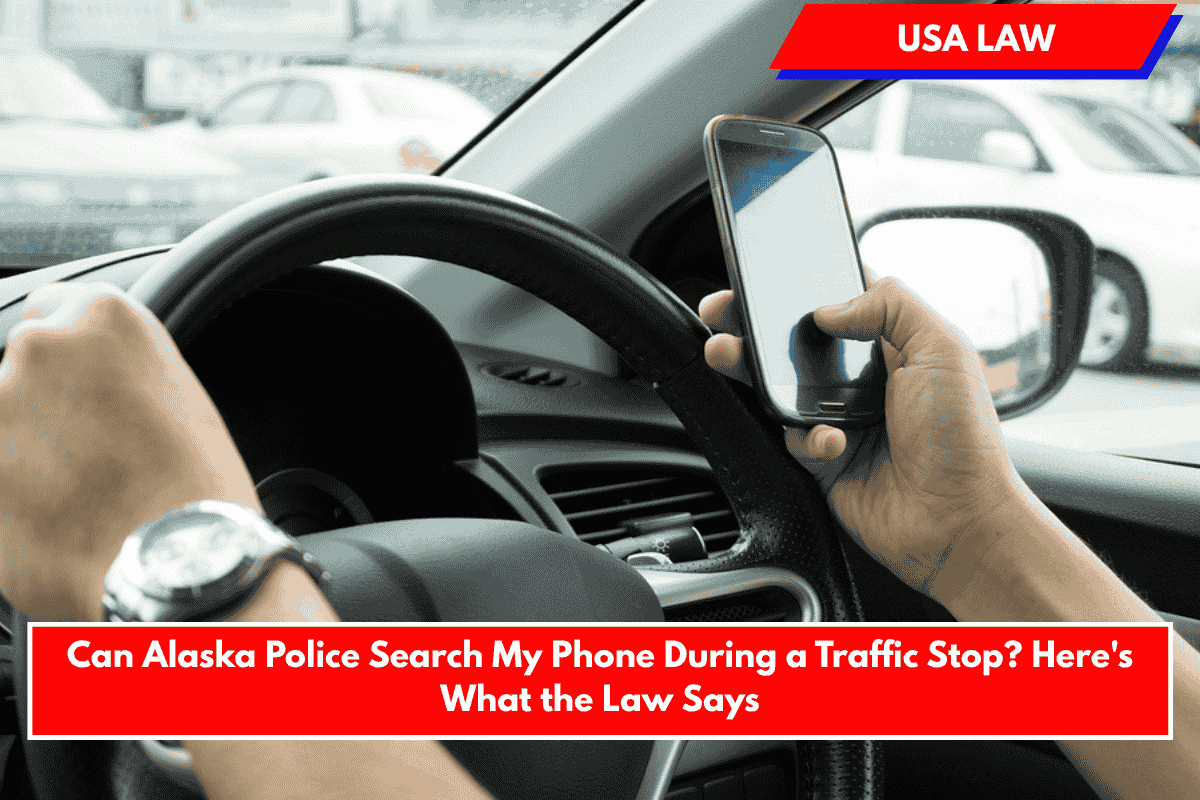No, Alaska police generally cannot search your phone during a traffic stop without a warrant, unless you give them explicit consent or a rare legal exception applies.
Your Rights During a Traffic Stop in Alaska
- You must provide your driver’s license, registration, and proof of insurance if asked by the officer.
- You do not have to answer other questions or provide your phone to the officer.
- If an officer asks to search your car or belongings (including your phone), you have the right to refuse. You should clearly state, “I do not consent to a search.” Refusing consent does not give the officer probable cause to search.
Phone Searches: The Legal Standard
Warrant Requirement
- The U.S. Supreme Court’s decision in Riley v. California (2014) established that police must obtain a warrant to search the digital contents of your cell phone—even if you are under arrest.
- This protection applies in Alaska, which also has strong constitutional safeguards against unreasonable searches and seizures.
Exceptions to the Warrant Rule
- Consent: If you voluntarily hand over your phone or agree to a search, police can search it without a warrant. Once you give consent, you have little recourse to challenge the search.
- Exigent Circumstances: In rare situations—such as an immediate threat to life or risk of evidence being destroyed—police may search your phone without a warrant. However, these situations must be justified and are narrowly defined.
- Probation/Parole: If you are on probation or parole, your terms may include conditions allowing warrantless searches, but this is specific to your case2.
Physical Access vs. Data Access
- Even if police seize your phone (for example, if you are arrested), they cannot search its contents without a warrant. They may secure the device (e.g., put it in airplane mode) to prevent data loss while seeking a warrant.
- Police cannot force you to unlock your phone using your fingerprint or facial recognition unless a warrant specifically authorizes this.
What Should You Do If Asked?
- Politely decline to provide your phone or consent to a search.
- Clearly state: “I do not consent to a search of my phone.”
- Do not physically resist, but do not unlock or hand over your phone unless required by a warrant.
- If your phone is searched without your consent or a warrant, you can challenge the evidence in court.
Summary Table: Alaska Police and Phone Searches
| Situation | Can Police Search Your Phone? | What Should You Do? |
|---|---|---|
| Routine traffic stop, no consent | No, warrant required | Decline consent, state your rights |
| You give consent | Yes, no warrant needed | Know that consent waives your protections |
| You are arrested, no warrant | No, warrant still required | Do not unlock or hand over phone |
| Exigent (emergency) circumstances | Possibly, but must be justified | Ask for legal justification |
| Probation/parole with search condition | Sometimes, depends on your terms | Know your specific conditions |
Alaska police cannot search your phone during a traffic stop unless you give them explicit consent or a rare legal exception applies. Always clearly state that you do not consent to a search, and remember that your refusal cannot be used as probable cause for a search. If your rights are violated, you can challenge the evidence in court
Sources
- https://www.acluak.org/en/news/know-your-rights-interacting-police-law-enforcement-and-ice
- https://www.youtube.com/watch?v=-I3j_WTo-GM
- https://alaskabar.org/youth/law-enforcement-and-crime/encounters-with-law-enforcement/stops/
- https://alaskabar.org/youth/wp-content/uploads/2018/04/Law_Enforcement_and_Crime.pdf
- https://www.acluak.org/en/know-your-rights/what-do-if-youre-stopped-police











